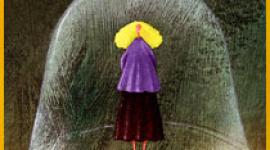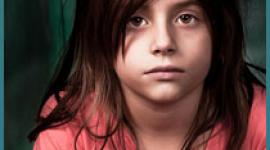Childhood Bipolar and Special Education Needs
What Are the Educational Needs for a Child With Bipolar Disorder?
 A diagnosis of bipolar disorder means the child has a significant health impairment (such as diabetes, epilepsy, or leukemia) that requires ongoing medical management. The child needs and is entitled to accommodations in school to benefit from his or her education. Bipolar disorder and the medications used to treat it can affect a child's school attendance, alertness and concentration, sensitivity to light, noise and stress, motivation, and energy available for learning. The child's functioning can vary greatly at different times throughout the day, season, and school year.
A diagnosis of bipolar disorder means the child has a significant health impairment (such as diabetes, epilepsy, or leukemia) that requires ongoing medical management. The child needs and is entitled to accommodations in school to benefit from his or her education. Bipolar disorder and the medications used to treat it can affect a child's school attendance, alertness and concentration, sensitivity to light, noise and stress, motivation, and energy available for learning. The child's functioning can vary greatly at different times throughout the day, season, and school year.
The special education staff, parents and professionals should meet as a team to determine the child's educational needs. An evaluation including psychoeducational testing will be done by the school (some families arrange for more extensive private testing). The educational needs of a particular child with bipolar disorder vary depending on the frequency, severity and duration of episodes of illness. These factors are difficult to predict in an individual case. Transitions to new teachers and new schools, return to school from vacations and absences, and changing to new medications are common times of increased symptoms for children with bipolar disorder. Medication side effects that can be troublesome at school include increased thirst and urination, excessive sleepiness or agitation, and interference with concentration. Weight gain, fatigue, and a tendency to become easily overheated and dehydrated impact a child's participation in gym and regular classes.
These factors and any others that affect the child's education must be identified. A plan (called an IEP) will be written to accommodate the child's needs. The IEP should include accommodations for periods when the child is relatively well (when a less intense level of services may suffice), and accommodations available to the child in the event of relapse. Specific accommodations should be backed up by a letter or phone call from the child's doctor to the director of special education in the school district. Some parents find it necessary to hire a lawyer to obtain the accommodations and services that federal law requires public schools to provide for children with similar health impairments.
Examples of accommodations helpful to children and adolescents with bipolar disorder include:
- preschool special education testing and services
- small class size (with children of similar intelligence) or self-contained classroom with other emotionally fragile (not "behavior disorder") children for part or all of the day
- one-on-one or shared special education aide to assist child in class
- back-and-forth notebook between home and school to assist communication
- homework reduced or excused and deadlines extended when energy is low
- late start to school day if fatigued in morning
- recorded books as alternative to self-reading when concentration is low
- designation of a "safe place" at school where child can retreat when overwhelmed
- designation of a staff member to whom the child can go as needed
- unlimited access to bathroom
- unlimited access to drinking water
- art therapy and music therapy
- extended time on tests
- use of calculator for math
- extra set of books at home
- use of keyboard or dictation for writing assignments
- regular sessions with a social worker or school psychologist
- social skills groups and peer support groups
- annual in-service training for teachers by child's treatment professionals (sponsored by school)
- enriched art, music, or other areas of particular strength
- curriculum that engages creativity and reduces boredom (for highly creative children)
- tutoring during extended absences
- goals set each week with rewards for achievement
- summer services such as day camps and special education summer school
- placement in a day hospital treatment program for periods of acute illness that can be managed without inpatient hospitalization
- placement in a therapeutic day school during extended relapses or to provide a period of extra support after hospitalization and before returning to regular school
- placement in a residential treatment center during extended periods of illness if a therapeutic day school near the family's home is not available or is unable to meet the child's needs
A Turning Point
Learning that one's child has bipolar disorder can be traumatic. Diagnosis usually follows months or years of the child's mood instability, school difficulties, and damaged relationships with family and friends. However, diagnosis can and should be a turning point for everyone concerned. Once the illness is identified, energies can be directed towards treatment, education, and developing coping strategies.
How do children and adolescents with this disease fare over time and as adults?
This answer appears on the NAMI website: "At this time, regrettably, the disease appears more severe and with a much longer road to recovery than is seen with adults. While some adults may have episodes of mania or depression with better functioning between episodes, children seem to have continuous illness over months and years."
next: How Can I Help My Bipolar Child?
~ bipolar disorder library
~ all bipolar disorder articles
APA Reference
Staff, H.
(2008, November 9). Childhood Bipolar and Special Education Needs, HealthyPlace. Retrieved
on 2026, March 2 from https://www.healthyplace.com/bipolar-disorder/articles/childhood-bipolar-and-special-education-needs



